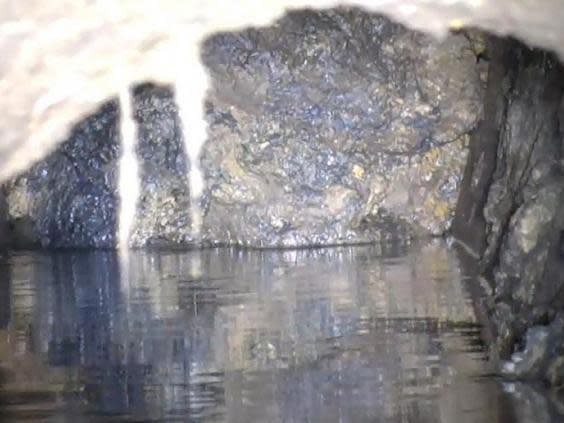Biggest ever fatberg in northwest found lurking in Liverpool sewer
The northwest’s biggest ever fatberg has been discovered lurking underground in a Liverpool sewer.
The 84-metre mass is longer than a passenger plane and weighs 90 tonnes – around the same as 13 African elephants.
Engineers used pick axes to dig out the blockage of congealed cooking fats, grease, wet wipes and sanitary products which have been poured down the sink or flushed down the toilet.
United Utilities, which made the discovery five metres below ground, said it could take eight weeks to fully remove the fatberg, which will then be sent for recycling into biofuel.
A spokesperson for the water company said: “Our sewer systems are only designed for water, toilet paper and human waste to flow through and not the increasing volume of fat and other items such as wet wipes which are contributing to over 25,000 sewer blockages in the northwest every year.
“Fatbergs block our sewerage system which can wreak havoc in homes and businesses.
“These blockages stop sewage passing through the pipe, eventually forcing the wretched smelly gunk back up to escape wherever it can onto roads, gardens and homes.”

Millions of pounds are spent cleaning drains and sewers across the UK because of items that shouldn't be in them.
Wet wipes, cotton wool, nappies, cotton buds and dental floss are just some of the culprits.
United Utilities said we can all do our bit to banish fatbergs by following some simple rules:
Allow oils and fats to cool after cooking and scrape them in to the bin. Never pour them down the sink as even small amounts can cause problems.
Scrape leftover food into the bin, feed it to birds or compost it.
Use a strainer to catch any bits and pieces of food in your sink.
If you have a large quantity of used oil and fats contact your council for advice.

 Yahoo News
Yahoo News 